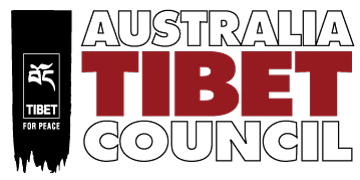UPDATE: Rex Patrick’s forced labour bill
By ATC Campaigns Officer Harvey Purse
Earlier this year, we gave a submission to a parliamentary inquiry into a bill banning goods produced by Uyghur forced labour and made the case that Tibetans should also be incorporated into the legislation on forced labour.
On 17th June the committee reviewing the Customs Amendment (Banning Goods Produced by Uyghur Forced Labour) Bill presented its report to parliament. Whilst the report did not recommend that the amendment proceed it did contain 14 recommendations which may help us on the issue of Tibetan forced labour.
These recommendations include amending the Customs Act and other legislation to prohibit the importation of any goods made wholly or partially with forced labour, regardless of geographic origin. Many submissions such as our own highlighted that we supported the Uyghur amendment but that it needed to expand to capture other use of forced labour such as the use of Tibetan forced labour. This recommendation captures those requests and is a win for our campaign to have the use of Tibetan forced labour outlawed in Australian company supply chains.
Some of the recommendations, if taken up by the government, will allow us to put forward cases where we can identify and prove the use of Tibetan forced labour. For example, it was recommended that Border Force should be empowered to issue rebuttable presumptions for specific goods, companies, and/or regions with particular high risk of being associated with labour. Importantly, the report also specifically recommended that the first order be made for cotton from East Turkestan, where evidence has emerged of half a million Uyghurs being forced to pick cotton (CH:Xinjiang). This is a win for Uyghur activists and ATC and the Tibetan community as well: for example, if we were to establish and prove that Tibetan forced labour is used in lithium mining this recommendation would allow us request, but not guarantee, Customs to issue an order for lithium from Tibet.
Another important recommendation is that a list of products or companies considered to be at high risk of use of forced labour be maintained. Depending on the mechanism for inclusion on the list this is another area we may be able to request the listing of a company if we can establish the use of forced labour, for example COFCO which was identified in Dr Adrian Zenz’s paper and our own research in Australia.
To assist Australian businesses and organisations to avoid sourcing products from forced labour chains, the report has recommended guidelines be introduced along with an online data system. It is often overlooked but an important part of the economy in any country is government procurement. The report recommended that the procurement policies, at all levels of government, should require due diligence on exposure to forced labour.
Other important recommendations include provision of adequate resourcing for Border Force to enable it to carry out the recommendations of the report and investigations into forced labour; that a working group be set up to investigate use of emerging technologies for tracing sources of origin.
The report also noted there should be liaison with other like minded countries, particularly Canada, the United Kingdom and the United States, for policy consistency and to learn practical lessons around implementation is important to ensure the legislation works as intended.
The report went beyond the Customs Act and called for the government to explore with like minded countries introducing a resolution at the UN condemning the situation in East Turkestan (CH: Xinjiang), a significant win for the Uyghur community.
Early in the review process ATC, through sources, identified that the most likely outcome of the review was a series of recommendations for reviewing the Modern Slavery Act. True to form the review recommended that there be a review of the Modern Slavery Act 2018 as soon as possible to consider strengthening provisions for its strengthening and broadening, and establishment of an independent body to oversee and enforce implementation. This is significant as a review that tightens and strengthens the Modern Slavery Act will give ATC and the community a further tool to try to stop Tibetan forced labour. We will be ready to put forward a submission and mobilise our community to raise their voices.
Whilst the Uyghurs and ourselves did not get everything we wanted, both groups are able to claim substantive victories with several important recommendations and reviews working in favour of diaspora communities.
Our next steps are to help ensure that the recommendations and reviews from the report are implemented by the government. We will keep you informed. For now, sign Rex Patrick’s petition calling for the government to ban the importation of products from Xinjiang and other parts of China that are produced in whole or part by forced labour.
